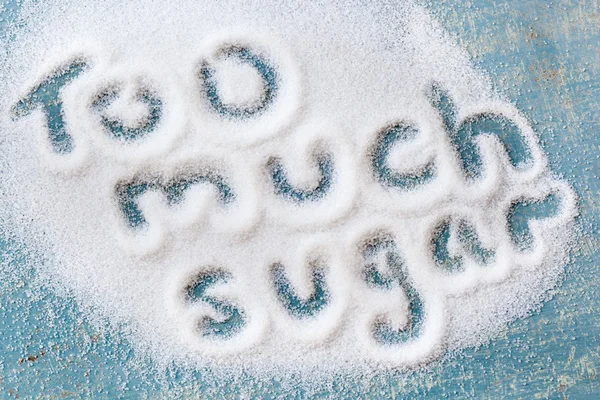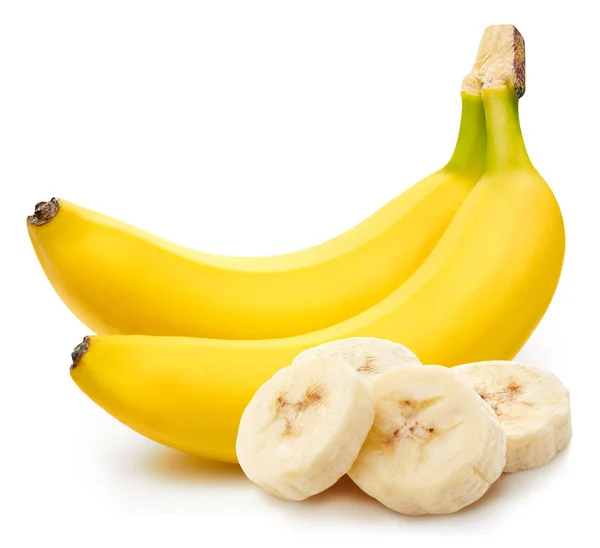12 effect of excess sugar in females – Excessive sugar consumption can have detrimental effects on overall health, and women are particularly susceptible to certain adverse consequences.
Specific Studies:
- A 2019 study published in the Journal of the American Heart Association found that females who consumed the highest amount of added sugars had a 44% higher risk of developing coronary heart disease compared to those with the lowest intake.
- A 2022 study published in the Journal of Nutrition found that adolescent girls who consumed the most sugar-sweetened beverages had significantly higher levels of depression and anxiety compared to those who consumed the least.
- A 2017 study published in the journal BMJ Open Diabetes Research & Care found that women with high sugar intake had an increased risk of developing type 2 diabetes, even after adjusting for other factors.

Recommendations:
- The World Health Organization (WHO) recommends limiting added sugars to less than 10% of total daily calorie intake. For a 2,000 calorie diet, this translates to no more than 50 grams of added sugar per day.
- The American Heart Association recommends limiting added sugars to no more than 25 grams per day for women.
- Reducing consumption of sugary drinks, sweets, and processed foods is crucial for limiting sugar intake.
- Opting for natural sweeteners like fruits and honey in moderation can be a healthier alternative.
- Maintaining a healthy weight through balanced diet and physical activity can mitigate the risks associated with excess sugar consumption.
Additional Considerations:
- Research on the specific impacts of sugar on females is still evolving.
- Individual responses to sugar intake can vary based on genetics, health status, and lifestyle factors.
- Consulting a healthcare professional for personalized dietary recommendations is crucial for managing sugar intake and associated health risks.
12 Effects of Excess Sugar in Females: Key downsides
Here’s a breakdown of 12 key side effects associated with excess sugar intake in females:
Weight Gain and Obesity: Sugar is a dense source of calories, and overconsumption can lead to an imbalance between calories consumed and calories burned, resulting in weight gain and obesity.
Type 2 Diabetes: Excessive sugar intake can contribute to insulin resistance, a condition where the body’s cells become less responsive to insulin, the hormone responsible for regulating blood sugar levels. This can eventually lead to type 2 diabetes.
Heart Disease: High sugar intake is linked to increased levels of triglycerides, a type of fat in the blood. Elevated triglycerides are a risk factor for heart disease, including atherosclerosis, heart attacks, and strokes.
Polycystic Ovary Syndrome (PCOS): PCOS is a common hormonal disorder among women, characterized by irregular periods, excess androgen levels, and cysts on the ovaries. Studies suggest that excess sugar consumption may worsen PCOS symptoms and increase the risk of developing the condition.
Acne: Sugar can trigger inflammation in the body, which may contribute to acne development. High-glycemic index foods, which cause rapid spikes in blood sugar levels, have been particularly linked to acne flare-ups.
Dental Health Issues: Sugar is a primary culprit in tooth decay and gum disease. Bacteria in the mouth feed on sugar, producing acids that erode tooth enamel and lead to cavities. Excess sugar consumption also increases the risk of gum inflammation and periodontal disease.
Depression and Mood Swings: Sugar consumption can have a roller coaster effect on mood. Initial sugar spikes can lead to feelings of euphoria, followed by a crash in energy levels and mood swings. This can contribute to depression and anxiety.
Skin Aging: Sugar can accelerate the skin’s aging process by damaging collagen and elastin, the proteins responsible for skin’s elasticity and plumpness. This can lead to wrinkles, fine lines, and sagging skin.
Nutrient Deficiencies: Excessive sugar intake can displace nutrient-rich foods from the diet, leading to deficiencies in essential vitamins, minerals, and fiber. These deficiencies can impair overall health and increase the risk of chronic diseases.
Fatigue and Low Energy: Sugar provides a quick burst of energy, but it’s followed by a crash in blood sugar levels, leaving you feeling drained and fatigued. This can lead to energy slumps and difficulty maintaining focus throughout the day.
Sleep Disturbances: Sugar consumption can interfere with sleep patterns. The energy spikes and crashes associated with sugar intake can make it difficult to fall asleep and stay asleep, leading to sleep disturbances and daytime fatigue.
Immune System Suppression: Excessive sugar intake can weaken the immune system’s ability to fight off infections and diseases. This is because sugar can reduce the production of white blood cells, which are essential for immune function.
Mitigating Sugar Intake and Embracing a Healthier Lifestyle

Reducing sugar consumption is crucial for women’s overall health and well-being. Here are some practical tips to minimize sugar intake and embrace a healthier lifestyle:
Read Related Also: 9 Daily Habits That Hinder Muscle Growth
Read Food Labels Carefully: Pay attention to the “added sugars” section on food labels. Added sugars are those that are not naturally present in the food and are often added during processing. Limit your intake of added sugars to less than 25 grams per day for women.
Opt for Whole Foods: Prioritize whole, unprocessed foods like fruits, vegetables, whole grains, and lean proteins. These foods offer essential nutrients and fiber, which can help regulate blood sugar levels and reduce cravings for sugary treats.
Choose Naturally Sweetened Options: When a sweet treat is desired, opt for naturally sweetened options like fruits, dark chocolate, or yogurt with a sprinkle of cinnamon or honey. These choices provide sweetness without the added sugars and artificial sweeteners found in processed snacks and desserts.
Reduce Sugary Beverages: Sugary drinks, such as sodas, juices, and sweetened coffee drinks, are a major source of added sugars. Replace these drinks with water, unsweetened tea, or sparkling water with a squeeze of citrus fruit for flavor.
Cook More Meals at Home: Cooking at home gives you control over the ingredients and allows you to limit added sugars. Experiment with new recipes and explore different cuisines to keep meals interesting and nutritious.
Plan Ahead: Plan your meals and snacks for the week to avoid impulse purchases and unhealthy choices. Keep healthy snacks on hand to satisfy cravings and prevent reaching for sugary treats.
Seek Support: Surround yourself with supportive friends and family who share similar health goals. Having a support system can provide encouragement and motivation along the way.
Be Patient and Consistent: Reducing sugar intake takes time and effort. Be patient with yourself and don’t get discouraged by setbacks. Focus on making gradual changes and celebrate your progress along the way.
Remember, a healthy lifestyle is not about deprivation; it’s about making conscious choices that nourish your body and support your overall well-being. By reducing sugar intake and embracing healthier habits, you can empower yourself to achieve your health goals and live a more vibrant and fulfilling life.
Natural Alternative to sugar for females

Fruits: Fruits are a great source of natural sweetness and provide essential vitamins, minerals, and fiber. They can be enjoyed fresh, dried, or frozen, and they make a healthy addition to smoothies, yogurt, and oatmeal. Some examples of fruits that are naturally sweet include:
- Bananas
- Berries (strawberries, raspberries, blueberries)
- Mangoes
- Pineapple
- Apples
- Pears
- Grapes
Dates: Dates are a dried fruit that is naturally sweet and high in fiber. They can be eaten whole, chopped up and added to snacks or desserts, or made into a paste that can be used as a sweetener.
Honey: Honey is a natural sweetener that is produced by bees. It is a good source of antioxidants and has antibacterial properties. Honey can be used to sweeten drinks, yogurt, and baked goods.
Maple syrup: Maple syrup is a natural sweetener that is made from the sap of maple trees. It has a rich flavor and can be used to sweeten pancakes, waffles, and oatmeal.
Monk fruit extract: Monk fruit extract is a natural sweetener that is about 150 times sweeter than sugar. It has no calories and does not raise blood sugar levels. Monk fruit extract can be used to sweeten drinks, desserts, and baked goods.
Erythritol: Erythritol is a sugar alcohol that is naturally found in some fruits and fermented foods. It has about 60% of the sweetness of sugar but has zero calories and does not raise blood sugar levels. Erythritol can be used to sweeten drinks, desserts, and baked goods.
Stevia: Stevia is a natural sweetener that is derived from the stevia plant. It is about 200 times sweeter than sugar and has zero calories. Stevia does not raise blood sugar levels and is safe for people with diabetes. Stevia can be used to sweeten drinks, desserts, and baked goods.
It is important to note that while these natural alternatives to sugar are generally safe for most people, it is always best to talk to your doctor before making any major changes to your diet.
Resources
- https://www.cdc.gov/obesity/index.html
- https://www.goredforwomen.org/en/about-heart-disease-in-women
- https://www.womenshealth.gov/heart-disease-and-stroke/heart-disease
- https://www.aad.org/public/diseases/acne
- https://www.mayoclinic.org/diseases-conditions/acne/symptoms-causes/syc-20368047
- https://diabetes.org/health-wellness/keeping-your-mouth-healthy
- https://www.cdc.gov/oralhealthdata/index.html
- https://www.health.harvard.edu/staying-healthy/the-bitter-truth-about-added-sugar
- https://www.nimh.nih.gov/health/topics/depression
- https://employeehealthplan.clevelandclinic.org/Home/Coordinated-Care/Coordinated-Care-Overview
- https://www.dermatologytimes.com/view/anti-aging-skin-care-tips-from-aad
- https://www.eatright.org/health/wellness/nutrition-panels-and-food-labels/the-scoop-on-added-sugars
- https://ods.od.nih.gov/HealthInformation/nutrientrecommendations.aspx
- https://www.mayoclinic.org/symptoms/fatigue/basics/definition/sym-20050894
- https://news.harvard.edu/gazette/story/2018/07/examining-sugars-effects-on-human-body-public-policy/
- https://m.youtube.com/shorts/gqZn-lJyXoo
- https://www.niaid.nih.gov/research/immune-system-overview
- https://www.frontiersin.org/articles/10.3389/fimmu.2022.988481






